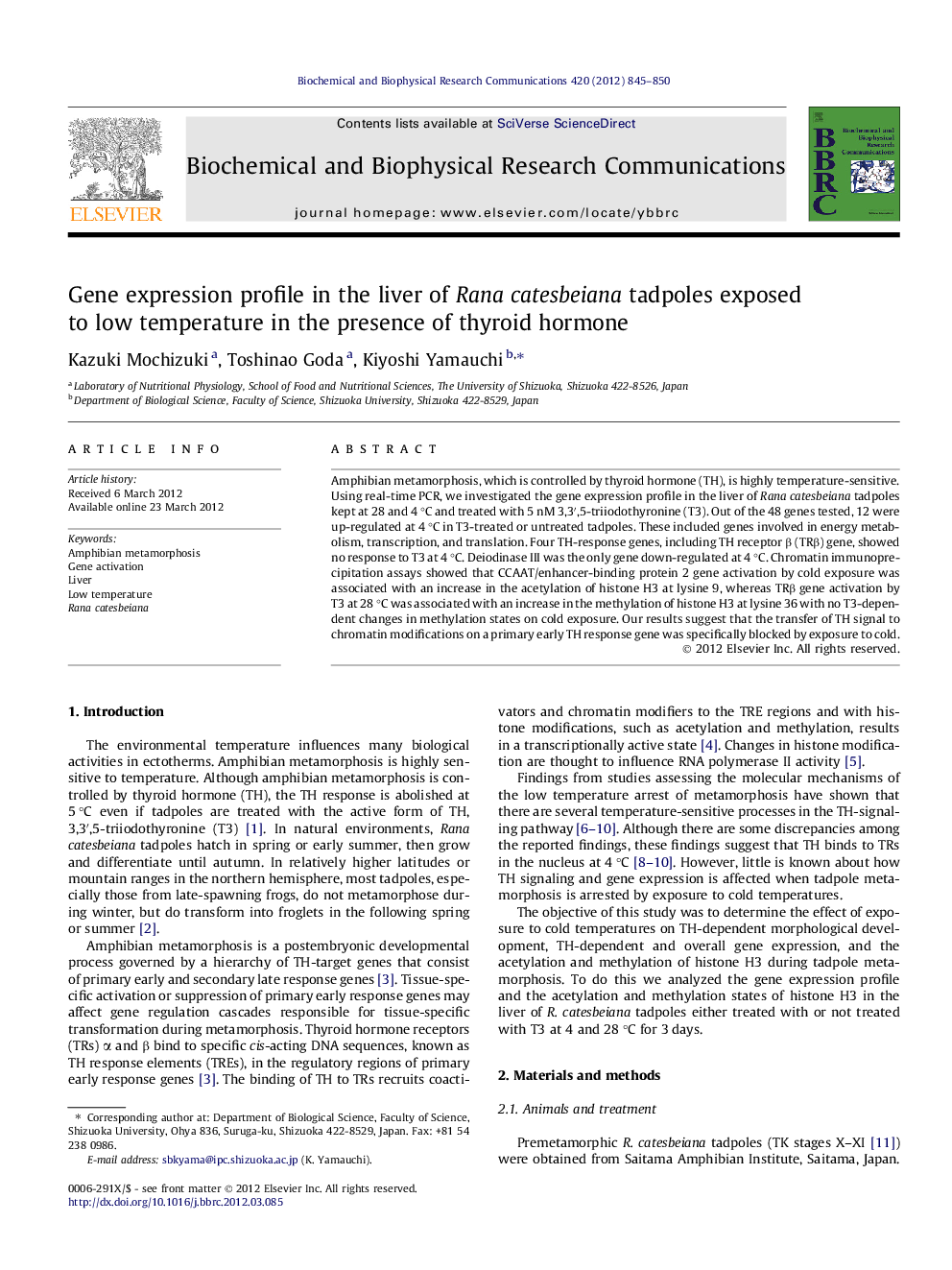| کد مقاله | کد نشریه | سال انتشار | مقاله انگلیسی | نسخه تمام متن |
|---|---|---|---|---|
| 1929571 | 1536782 | 2012 | 6 صفحه PDF | دانلود رایگان |

Amphibian metamorphosis, which is controlled by thyroid hormone (TH), is highly temperature-sensitive. Using real-time PCR, we investigated the gene expression profile in the liver of Rana catesbeiana tadpoles kept at 28 and 4 °C and treated with 5 nM 3,3′,5-triiodothyronine (T3). Out of the 48 genes tested, 12 were up-regulated at 4 °C in T3-treated or untreated tadpoles. These included genes involved in energy metabolism, transcription, and translation. Four TH-response genes, including TH receptor β (TRβ) gene, showed no response to T3 at 4 °C. Deiodinase III was the only gene down-regulated at 4 °C. Chromatin immunoprecipitation assays showed that CCAAT/enhancer-binding protein 2 gene activation by cold exposure was associated with an increase in the acetylation of histone H3 at lysine 9, whereas TRβ gene activation by T3 at 28 °C was associated with an increase in the methylation of histone H3 at lysine 36 with no T3-dependent changes in methylation states on cold exposure. Our results suggest that the transfer of TH signal to chromatin modifications on a primary early TH response gene was specifically blocked by exposure to cold.
► Thyroid hormone (TH) activated its receptor (TR) gene in the tadpole liver.
► Cold exposure blocked the progress of TH-dependent amphibian metamorphosis.
► Histone H3-K36 trimethylation levels are associated with TR gene activation.
► A temperature-sensitive TH signaling pathway may exist before histone modification.
► One quarter of the genes investigated were activated by cold exposure.
Journal: Biochemical and Biophysical Research Communications - Volume 420, Issue 4, 20 April 2012, Pages 845–850